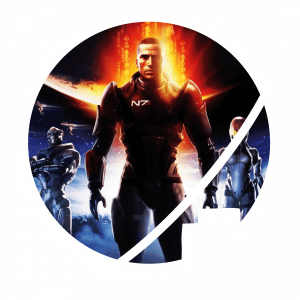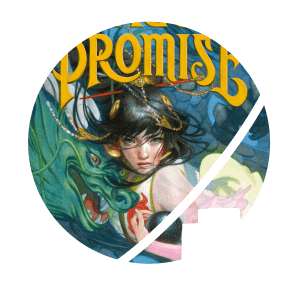Welcome to the Escape Velocity Collection!
We are an opinionated group of friends reviewing all sorts of fantasy and science fiction media. Don’t forget to get to know the curators and visit our curated Collection, where we discuss the stories that never cease to transport us to another world.
Will you escape with us?
LATEST POSTS:
- Book written by S.A. Chakraborty
- Published 11 June 2020
- Part 3 in the Daevabad Trilogy
The world will never be the same. Suleiman’s seal has left Daevabad and the magic of the djinn has faded away. In addition, the merciless Manizheh now controls the capitol.
Left to their own devices, Nahri and Ali must search for a way to make things right. A mission that might lead them to allies that are even more dangerous than the ones they are currently fighting…
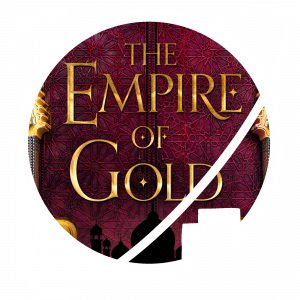

Wow. With this book, Chakraborty once again managed to write something both beautiful and epic. A worthy conclusion to an amazingly original trilogy.
Apart from a few suboptimal pacing decisions, The Empire of Gold has everything one might desire in the final installment of a trilogy. Not only are all mysteries sufficiently clarified, but every character gets a fitting ending to their arc. Some of it might be heartbreaking, but ultimately everything feels at its place.
To name some spoiler-free elements that particularly impressed me:
- The scene with Nahri’s real name
- The revelations of Nahri’s family history
- The conclusion to Dara’s arc
- The almost fateful machinations that bound the main characters together, long before the trilogy’s story even began.
I must admit I was initially doubtful that all loose ends could be neatly tied up, but Chakraborty managed it. The few open endings that remain are deliberate. Interesting enough to simply spark your imagination about the other stories that could be told, but not so large as to be frustrating.
By the way, I once again want to express my appreciation for the way in which Middle-Eastern mythologies are incorporated in these books. This time some Egyptian elements – amongst other things – came to light, and I can’t help but appreciate the thoughtful creativity behind it. Bonus points for the excellent religious representation.
In my opinion, this trilogy deserves every praise it gets.
Tagged:
- Book written by Terry Pratchett
- Published in 1992
- Stand alone in the Discworld universe
The Great God Om manifests himself on Discworld once more, ready to herald a new age. To his own distress, however, Om finds himself trapped in the body of a lowly tortoise, stripped of his divine powers.
The only person who seems to understand Om is the humble novice Brutha. But will the aid of this person be enough to reclaim Om’s powers?


I haven’t read as much Terry Pratchett as I should, but I have read this masterpiece.
In his typical humorous and satirical way, Pratchett uses Small Gods to reflect on some fascinating religious and philosophical themes. What if deities gained their powers from the faith of their followers? What is the difference between institutional worship and personal faith?
Though these subjects could quickly become heavy, they are continuously lightened by the plot and Pratchett’s humor. If you want to low-key dip your toes in religious/philosophical theories, this is great book to start with!
See also:
- Book written by S.A. Chakraborty
- Published 22 January 2019
- Part 2 in the Daevabad Trilogy
Marked by Dara’s devastating escape attempt, both Nahri and Ali struggle to adapt to their new roles. Nahri , as the new Banu Nahida, is a beacon of hope for her people. However, Daevabad’s deathly politics threaten her every move. Meanwhile, Ali is a degraced prince living in exile, who just can’t seem to escape his family’s reach.
Neither Nahri nor Ali know of the greater danger that’s growing in the shadows, biding its time…
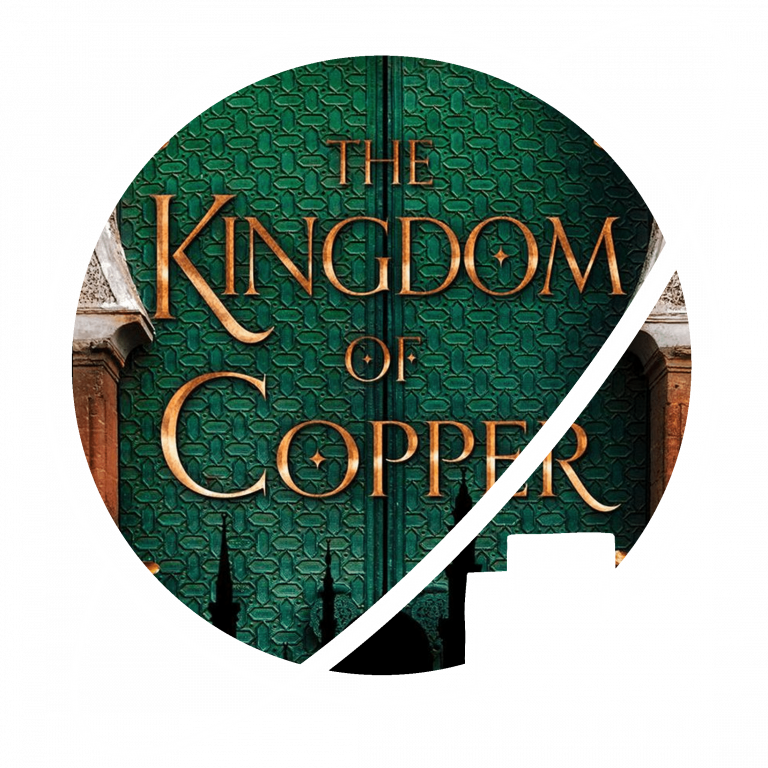

Whereas The City of Brass pulled me in, this sequel grasped me. In fact, it might be one of the best books I’ve read in the last few years.
With all of the build-up out of the way, Chakraborty has her hands free to weave an interesting story in which all of the established mysteries and characters get a chance to blossom. The political plots are further deepened and none of the characters are safe. Tension lurks in different corners throughout the story, and you can never quite tell what will happen next. Eventually, this all culminates in an utterly satisfying climax.
It seems some readers were disappointed with a timeskip that happens quite early in the book. However, I don’t share this sentiment. On the whole, I have very little critique. For me, Chakraborty took everything that was good about The City of Brass and improved on the elements that needed it. I understand that some people didn’t like the fact that the story moved away from its ‘young adult’-like atmosphere and romances to focus more on the political side of things. Indeed, one might say The Kingdom of Copper is a different kind of story when compared to The City of Brass in those regards. All I can say is that I wholeheartedly enjoyed reading this sequel.
If you liked The Kingdom of Copper, I can already tell you that the third installment of this series, The Empire of Gold, will be worth your while.
Tagged:
- Book written by Joe Abercrombie
- Published June 2009
- Stand alone in the First Law universe
Against a backdrop of Machiavellian politics and bloody war between the city states of Styria, former mercenary general Monzcarro Murcatto is betrayed and nearly murdered by an employer she thought she could trust. Battered and beaten, she scrapes together a crew of bloody-minded misfits – amongst which a barbarian Northman looking to better his life, a murder with a mind for numbers and a poisoner with an excess of pride – with a single mission: Revenge!
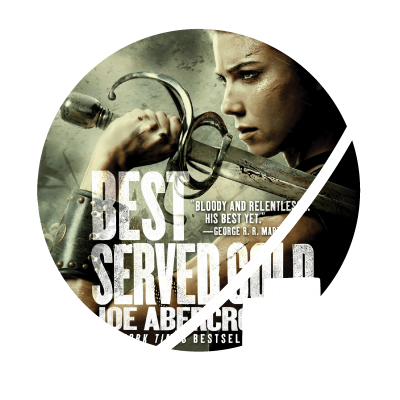

Listened to the audiobook with Steven Pacey – I’m starting to think his excellent performance of the First Law-trilogy is half the reason I picked up this book, and his reading of Best Served Cold was every bit as good as his work on previous Joe Abercrombie-books.
This book is set in the same universe as the First Law-trilogy, but I am sure you could read Best Served Cold without having the prior knowledge. There are a handful of nice references and recurring characters familiar to readers of First Law, but none that are required for understanding what is going on.
Best Served Cold is both very similar and very different to previous books set in what I understand is also called the First Law-universe. It is very similar in that Abercrombie brings his signature style of well written prose, a nice balance of dark humour versus serious story, antihero protagonists, and blood-splashing-the-camera violence and gore.
It is very different in scope. One of my disappointments when I read The Blade Itself, the first part of Abercrombie’s First Law-trilogy, was that it felt like a large heap of (albeit well written) world-building and set up without much story progression. Even though I liked the trilogy in the end, I felt there was maybe too much going on for three books, and perhaps it would have been better to explore some settings or characters more outside of the scope of the trilogy (which I understand Abercrombie has done, and I will get to those books and stories in due time). Best Served Cold addresses all of these issues by zooming in on a smaller set of characters with an emotionally driven goal in a smaller geographical space, with just the occasional reference to the grand politics and great mages of the outside world. This sub-genre shift from epic fantasy to swords-and-sorcery fits Abercrombie’s style very well.
As befits a standalone novel, there is very little world building and rules setting weighing down the plot – instead, the main character gets to start her revenge mission a couple of chapters in, and the story doesn’t let up from there. I do not want to say that the setting is not well though-out, but rather that – unlike is the case in some fantasy novels – the setting exists as a stage for the drama rather than as a main character itself. I personally rather like the Machiavellian, warring-Italian-city-states backdrop. I feel it fits the book’s nihilistic message – and I don’t think it needed any more explanation than it got to work well.
Above all though, I found the book profoundly easy to read. That is in part due to Abercrombie’s easy and humorous prose, but also due to the somewhat episodic structure to this novel that means you will never loose track of where story is going next, and that delivers a satisfying climax every time.
I realise that Grimdark does not appeal to everyone, and some people will probably find this book somewhat disgusting and highly depressing. Others will love it to bits. Overall, I I think Best Served Cold is an excellent fantasy novel, and I would recommend people seeking to give Joe Abercrombie a shot to start here – it requires a lot less getting into and is even a tad less dark than the First Law-trilogy (I think? It’s still pretty dark), but it showcases all of Abercrombie’s qualities very well.
See also:
- Movie directed by Adam McKay
- Produced by Netflix
- Starring Leonardo DiCaprio, Jennifer Lawrence, Rob Morgan, Jonah Hill, Timothée Chalamet, Ariana Grande, Cate Blanchett, Meryl Streep and others
- Released in 2021
- Runtime: 138 minutes
Two astronomers discover an extinction-event worthy comet is headed for Earth. Humanity has six months to think of something to save the planet. However, who will listen to the scientific community warning for total destruction? Certainly not politicians or the media…
 Let’s get the elephant out of the room: this movie is about climate change. And maybe a bit about the corona pandemic. It is about inevitable destruction not being enough to get people to take action and save the world.
Let’s get the elephant out of the room: this movie is about climate change. And maybe a bit about the corona pandemic. It is about inevitable destruction not being enough to get people to take action and save the world.
Now that is out of the way, let’s talk about the movie. I found it entertaining. I think it was a bit too long, especially the first half, but not boring. In comparison with McKay’s other social commentaries The Big Short and Vice, the story was more on the forefront and there was no fourth-wall breaking explanations – which I don’t really like – except in the beginning, when text on the screen explains a particular institution is real. Yet I found the message of the movie coming down a bit more flat than McKay’s previous movies. It was very on the nose and made me shrug like, yep, that is the way it is, no surprises there.
Some critics might say this was because the real world is more bizar than the satire of Don’t look up. I disagree. I think the frustrating and infuriating system of unresponsive governments can still be shown by zooming in and focusing on a specific aspect of reality – satire enlarges this aspect and shows the absurdity.
Did the movie succeed in this? Yes and no. I think the talk show/media-part was quite good, but the political angle did not do it for me. The president (Meryl Streep) and secretary of state/son of the president (Jonah Hill) did a fine job acting-wise, but the movie would have been stronger when the politicians had been colder and more calculating, instead of incompetent and happy. We do have some experience with powerful yet jolly and incompetent leaders of course – ahum – but I think pointing to this as the cause of inaction does not hold (completely) in global perspective. Which is another thing I would have loved to see: a less US-centric approach. Although this Americentrism might also be a point the movie is trying to make.
I wonder if the movie would have been better when it had focused on either politicians or the media. A movie about global organisations and politicians caught in a web of bureaucracy and diplomatic relations, where not one powerful individual is to blame, but a political system that we can’t seem to escape. Or a movie about the media cycle that can’t really express urgency when issues take more than a week to solve and that try to make every information into infotainment.
The movie was good and important. I have seen reactions of people who say the movie opened their eyes. I am glad. But the question remains: will it spur politicians on to action or will it disappear in the news cycle like any other piece of global warning? (pun intended)

I watched this movie because the premise was kind of interesting and I like a disaster movie. It’s not that I hated it, but I was expecting it to be better with the cast that it had. This movie is… fine. It’s very on the nose, and it wasn’t very funny? There’s a lot to be said about this movie that has already been said, so I will keep this short.
I feel like the idea of satire is to point something out in a funny way. Or at least in a way that makes the situation funny. This movie just wasn’t very funny? There were some jokes, I guess. Maybe I laughed twice?
What it comes down to for me is this: We all know global warming sucks and the people in power aren’t doing enough to stop it. This isn’t news. If you’re going to write a satirical movie about it, at least make me laugh.
“Underwhelming” definitely covers how I felt about Don’t Look Up.
 The first half of the movie I was amused, then I was just sad. I like my fiction a bit more… fictional.
The first half of the movie I was amused, then I was just sad. I like my fiction a bit more… fictional.
I jumped blindly on the hype-train and I think I regret it. I do want to give a shoutout to the casting director. If you’re a fan of one of the big names in the cast, it might be worth it to see them do something completely different from their usual works. Otherwise I would not recommend this movie.
Tagged:
- Book written by Naomi Novik
- Published in 2020
- Part 1 of The Scholomance
In the Scholomance, students are trained to defend themselves against the hordes of deadly monsters that are constantly trying to eat them. Although survival rates in the Scholomance are only around 50%, this is still higher than those outside of the school. There are no retakes, holidays or even teachers. Students either graduate… or die.
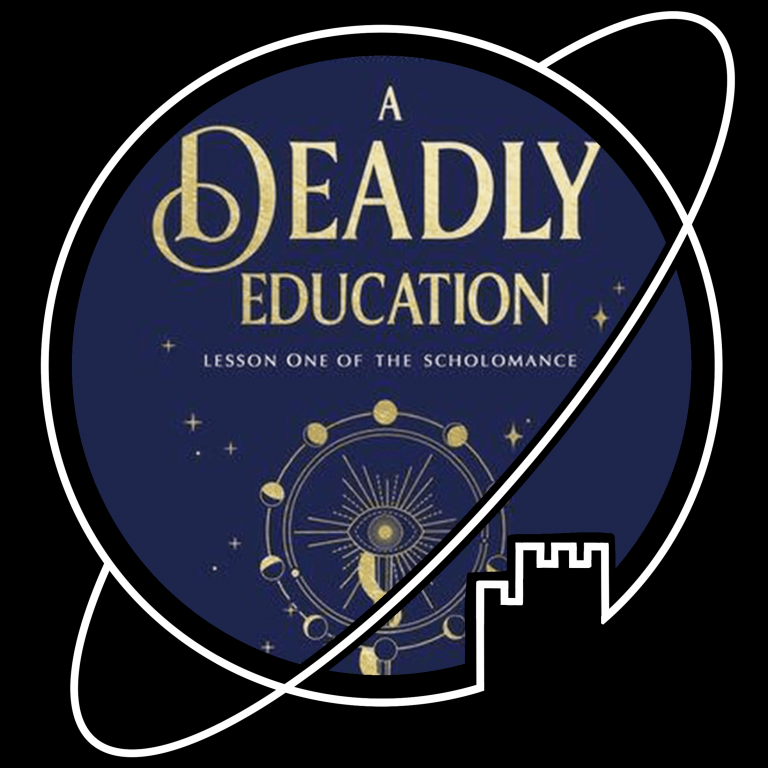

The premise of this book sounded slightly ridiculous to me, but I suspected that in Naomi Novik’s capable hands it could turn into something really fun. That’s exactly what it delivered: the book is fast-paced, easy to get drawn into and does’t take itself too seriously. There are no major surprises to seasoned fantasy readers, but for lovers of the ‘magic-boarding school’ sub-genre this will tick all right the boxes.
One thing I especially enjoyed about it, is that it is not a fight of good against evil: the students need to stay alive in a world where they are in constant danger of being eaten, but there are hardly any villains in the book. There are no frustratingly evil teachers that the students have to stand up against, only a deeply unfair socio-political system and students taking advantage of the privilege that this system gives them.
El’s temper and dry humor combined with her strict moral code make her a very fun character to read about. Especially her ill-tempered attitude towards Orion is a highlight of the book. I think this is a great read for a young-adult audience, but also for older readers who are in the mood for a quick, fun read.
Tagged:

Review: The Empire of Gold – S.A. Chakraborty
Review of part 3 of the Daevabad Trilogy
Left to their own devices, Nahri and Ali must search for a way to make things right. A mission that might lead them to allies that are even more dangerous than the ones they are currently fighting…

Review: Small Gods – Terry Pratchett
Review: The Great God Om manifests himself on Discworld once more, ready to herald a new age. To his own distress, however, Om finds himself trapped in the body of a lowly tortoise, stripped of his divine powers.
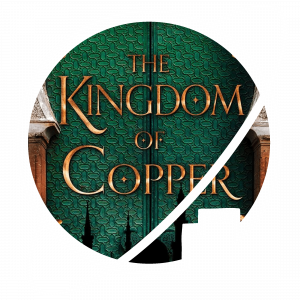
Review: The Kingdom of Copper – S.A. Chakraborty
Review of part 2 of the Daevabad Trilogy
Marked by Dara’s devastating escape attempt, both Nahri and Ali struggle to adapt to their new roles. Neither of them are aware of the great danger growing in the shadows, biding its time…
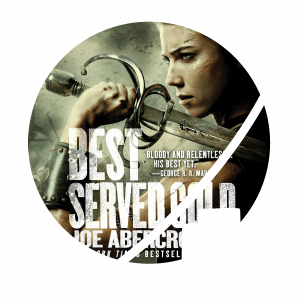
Review: Best Served Cold – Joe Abercrombie
Against a backdrop of Machiavellian politics and bloody war between the city states of Styria, former mercenary general Monzcarro Murcatto is betrayed and nearly murdered by an employer she thought she could trust. Battered and beaten, she scrapes together a crew of bloody-minded misfits with a single mission: Revenge!

Review: Don’t look up – Adam McKay
Two astronomers discover an extinction-event worthy comet is headed for Earth. Humanity has six months to think of something to save the planet. However, who will listen to the scientific community warning for total destruction? Certainly not politicians or the media…
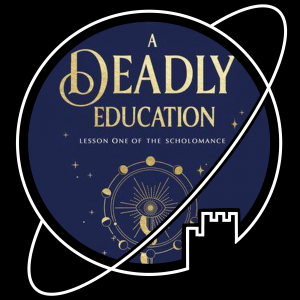
Review: A Deadly Education – Naomi Novik
Part 1 of The Scholomance – In the Scholomance, students are trained to defend themselves against the hordes of deadly monsters that are constantly trying to eat them. They either graduate… or die.











